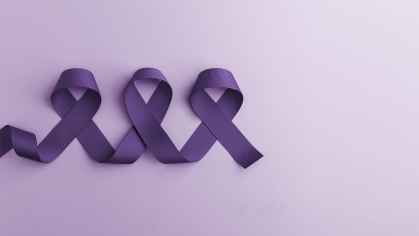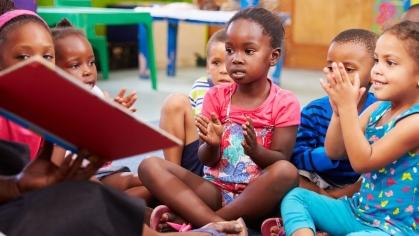By Susan Moromisato
The mission of the School of Social Work’s Latina/o/x Initiatives for Service, Training, and Assessment (LISTA) MSW Certificate Program is to develop social workers who are culturally competent to work with the Latinx community. LISTA students are learning and undergoing training to be able to support this community across many facets of policy and community work.
LISTA student Susan Moromisato interviews Johanna Calle, Senior Policy Advisor at the Office of New Americans in the New Jersey Department of Human Services, to discuss how to support Latinx communities and engage in policy work. Minor edits to the transcript have been made for brevity.
Susan Moromisato: Johanna, thank you for conducting this interview with LISTA, the newest certificate program at Rutgers School of Social Work. We are excited to speak with you about this new division that Governor Murphy launched and discuss the work that you’re doing. The Office of New Americans (ONA) was recently established during one of the most challenging times in our country's history. Can you share more about it, its relation to the Department of Human Services (DHS), and how you came to join the ONA?
Johanna Calle: Governor Murphy signed the executive order on July 4th, 2019 at a naturalization ceremony to welcome all new Americans who make New Jersey their home. The executive order outlined that the DHS and the Department of Labor (DOL) work together to establish the Office of New Americans, and both are the key drivers of this initiative.
There are eleven states that have such offices, and each run various initiatives. We researched these to see how it could benefit New Jersey. The DOL and DHS also had stakeholder meetings to hear from community service organizations and providers to learn more about what they have seen on the ground.
I joined ONA in April of 2020, at the beginning of the COVID-19 pandemic, and so my work included assisting the state in tackling the public health emergency. The ONA has been supporting the Department of Health (DOH) to ensure that immigrants’ and refugees’ needs were being addressed in the COVID response plan.
SM: The ONA has also been working on initiatives outlined in the New Americans Integration Report (2020), like legislation for immigrants to obtain driver's licenses and for making New Jersey one of the first states on the East Coast to provide qualified residents with occupational licenses regardless of their immigration status. Can you share a few updates regarding how some of these initiatives are progressing?
JC: Immigrant and refugee interests are being prioritized in parallel to COVID. The Governor's proposed budget increases legal services funding for those facing detention and deportation to 8.2 million dollars. This program moved to the DHS/ONA this past fiscal year. Another major project is the Skilled Immigrant Integration Project, which is led by the DOL with the support of the ONA. Its goal is to create initiatives that will help put immigrants and refugees into the workforce. Many unemployed immigrants have foreign education, and it's important for them to access the resources that the DOL has, such as adult education and upskilling, in order to pursue the careers that they’re interested in.
Many of the initiatives we’ve discussed have been in the works on the community side. I did work on the advocacy side for almost six years in New Jersey before I joined the ONA. These policies that you mentioned were a part of the acts of advocates and communities for ten to fifteen years. Fortunately, under Governor Murphy, these were able to come through and are now being implemented after years of people highlighting the need for them on the community side.
The role of the ONA is to support our sister agencies as they implement these programs. For example, with driver’s licenses. This legislation, and the policy that was passed by the Governor, make a big difference because people will now be able to apply to the state and get those professional licenses. We are also supporting our colleagues at the Division of Consumer Affairs, as they are preparing to engage with communities to explain how to apply for those licenses.
SM: In the New Americans Integration Report (2020), it was also mentioned that the ONA is working on direct community engagement. Can you expand on this and share how listening sessions with immigrant communities are being carried out?
JC: The goal of the ONA is to ensure that we have a direct line of communication with immigrant communities. This includes ensuring that the community is aware of the programs and initiatives available to them, as well as understanding what resources the community needs.
We want to have conversations with those who are directly impacted. This has been difficult during the pandemic, because we want to ensure that we are doing so safely. Nevertheless, we continue to reach out to the those who are working with people in the community. Therefore, we've had several listening sessions with community-based organizations, service providers, and advocacy organizations to get information from them.
Another objective of ours is figuring out how the state government can build trust with the community members, as that is crucial. The DHS created a one-pager to help people navigate what was going on in terms of public charge and social services. When COVID-19 hit, we worked with the DOL and DHS on a one-pager where we detailed the resources available to people, such as unemployment insurance and family leave, and explained what immigration statuses were needed to access them.
SM: Some of the challenges immigrants have are access to the technology needed to find and apply for these present and upcoming resources. Are there initiatives being carried out by the ONA to help educate our new Americans on accessing and learning the necessary technology?
JC: The barriers to technological access was something we immediately pointed out to the DOH. For example, we needed an alternative to the NJ Vaccine Scheduling System (NJVSS), which is digital, and not everyone has access to it. In response, the DOH assembled a phone line with over 200 languages available that people can call to get an appointment for the COVID vaccine. We are working with the New American Economy to get data on what languages immigrants in New Jersey speak, so that we can make our resources more accessible to them. New Jersey is a diverse state, and that’s what gives it beauty.
I think we're very much aware of that and also [continuing] to figure out how we can make information accessible in the languages that [immigrants] understand, because that also makes it a lot easier for folks to feel comfortable navigating where to go, where to get information, and how to apply [for available resources]. We have worked with the New American Economy to get data on what languages folks speak across the state of New Jersey, so that we are aware. Also, I think we often think of Spanish as [the most spoken foreign language], which is true. [Spanish-speaking immigrants make up a] huge number of the [immigrant] community. But new Americans encompass so many cultures, and what makes New Jersey so beautiful and wonderful is how diverse we are.



